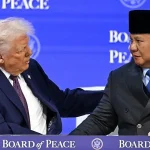The African Refiners and Distributors Association (ARDA) has urged all 54 African nations to end the use of the U.S. dollar in pricing petroleum products.
Instead, the continent should focus on building integrated infrastructure that ensures energy security, free from dependency on developed nations, to stabilize their economies.
Speaking at the African Energy Week in Cape Town, South Africa, ARDA President Dr. Mustapha Abdul-Hamid called for an end to crude oil exports, highlighting that Africa is still far from achieving energy security despite its growing population.
Dr. Abdul-Hamid, who is also the Chief Executive of the National Petroleum Authority (NPA), argued that reducing reliance on foreign currencies for energy transactions would help African countries lower energy import costs, stabilize their economies, and secure long-term energy independence.
He emphasized the importance of refining and utilizing Africa’s own resources, rather than exporting raw crude oil only to import refined products later.
“Nobody puts crude oil in their vehicle or airplane – everything that generates movement and wealth is a refined product. This underlines the need for closer collaboration between Africa’s upstream and downstream sectors to ensure that the continent fully benefits from its natural resources,” he said.
Dr. Mustapha Abdul-Hamid outlined a three-tier strategy to achieve Africa’s energy independence: policy harmonization, infrastructure integration, and the adoption of regional currencies for energy transactions.
He emphasized that the continent’s fuel standards vary significantly from country to country, creating obstacles for regional trade and limiting cross-border cooperation.
For instance, while Ghana has set its fuel sulfur limit at 50 parts per million (ppm), neighbouring West African countries permit sulfur levels between 1,500 and 3,000 ppm.
This disparity not only complicates imports but also drives up costs.
Dr. Abdul-Hamid argued that standardizing fuel specifications across Africa would reduce trade barriers, enhance economic collaboration, and support the continent’s journey toward energy self-sufficiency.
“Without a harmonised specification across Africa, trade within the continent remains difficult, restricting our ability to collaborate effectively,” Abdul-Hamid stated.
He also emphasised the importance of collaboration among regulatory bodies, national oil companies, and governments to develop a unified approach to energy production and distribution, adding that efforts like Ghana’s policy requiring companies to use locally refined fuel for oil extraction machinery strengthen domestic refinery output.
Dr. Abdul-Hamid advocated for establishing a regional currency that would mitigate the effects of Africa’s dependence on the U.S. dollar.
“Currently, oil marketers in Ghana require $400 million each month to import refined petroleum products – a demand that constantly pressures the Ghanaian Cedi. Developing a shared currency within regional blocs like West Africa could reduce these pressures and allow us to strengthen our economies,” he suggested.
















